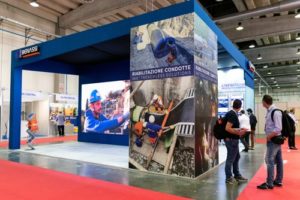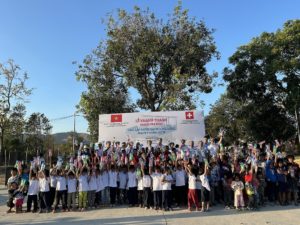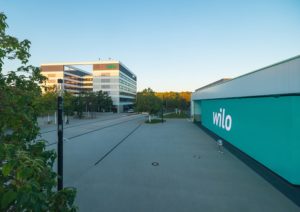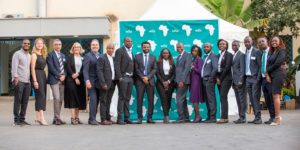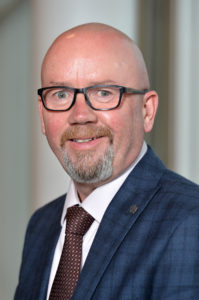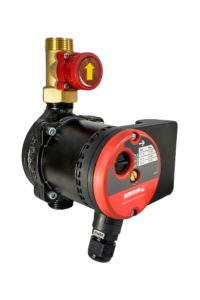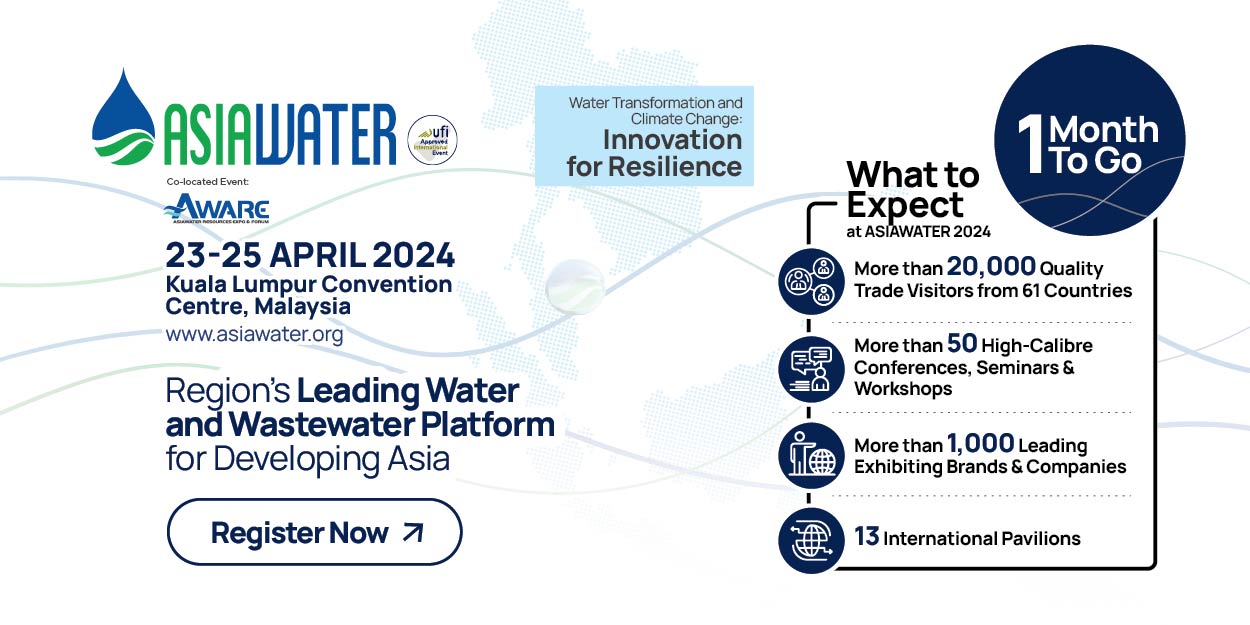Hong Kong’s IWA-ASPIRE Conference 2019: De Nora Highlights Innovative Solution Addressing Chlorine Management Safety
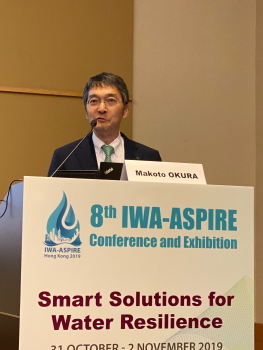
Mr. Makoto Okura, Representative Managing Director of De Nora Permelec, giving the speech in the Pre-Conference workshop of IWA. (Image source: Industrie De Nora S.p.A.)
Water treatment has become an indispensable part of the water supply process, with chlorine being the most common disinfectant. However, safety around the transportation and management of chlorine gas is a growing concern, particularly in populated areas.
Discussing this issue at a pre-conference workshop ahead of IWA-ASPIRE Conference 2019, De Nora promoted an alternative to providing safe water – generating chlorine on-site, which eliminates the risks associated with transporting and storing large quantities of liquid chlorine containers.
De Nora’s CECHLO on-site chlorine generation technology follows the typical chlorine generation process in a scaled-down system. Developed by Chlorine Engineers Corp., Ltd and acquired by De Nora in 2012, it uses world-proven ion exchange membrane electrolysis technology to generate chlorine or/and sodium hypochlorite on-site at a high strength of 12 percent.
To ensure greater chlorine management, De Nora developed a system featuring both its CECHLO and Capital Controls solutions. The chlorine gas feed system is designed to take wet chlorine gas from the on-site chlorine gas generator and feed it to the water treatment process for oxidation and disinfection. Developed in 1960, De Nora’s Capital Controls gas feed systems were the first all-vacuum gas feed systems, and is of industry standard today.
De Nora also shared a recent case study featuring Hong Kong’s Water Supplies Department (WSD) to illustrate the implementation of the hybrid solution. Responding to safety concerns around the transport and storage of huge amount of liquid chlorine containers in the highly populated waterworks, De Nora delivered the hybrid water disinfection systems to 10 of its water treatment plants, which will have a combined design capacity of 16,920 kg/day chlorine. All systems are expected to be operational by 2020.
Makoto Okura, Managing Director of De Nora Permelec Ltd, said, “Growing regulations around water quality and safety has driven more utilities in the region to seek advanced solutions that are robust enough to address today’s water challenges. We are honored to be recognized by several municipal customers for our 100 years of expertise in water and electrode technologies, including Hong Kong WSD, and chosen to deliver bespoke solutions to meet their disinfection needs.”
In addition to Hong Kong WSD, De Nora has had several successful on-site chlorine generation projects over the years. One is the Asaka Water Purification Plant, which is the second largest water purification plant in Japan, which uses CECHLO to produce 1,200 kg/day in each unit. With four units installed, the volume of water treated is 1,700,000 m³/day serving a population of 2.8 million people. De Nora also worked with the Wattccon Sodium Hypochlorite Chemical Plant in Kaduna, Nigeria, which manufactures 40,000 litres per day of sodium hypochlorite at 15 percent strength.
Mr Okura added, “We are excited to be working with water providers around the world, delivering innovative solutions that can change the narrative around water-related security issues. De Nora will continue its commitment to develop innovative solutions that supports a safe and sustainable water access, for businesses as well as individuals.”
Source: International Water Association

